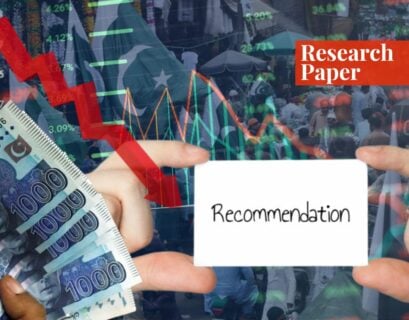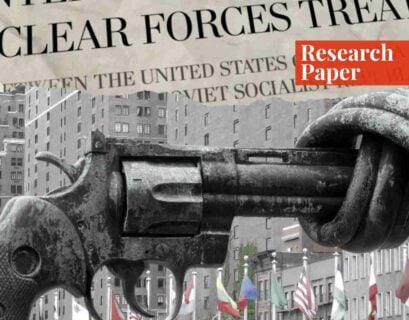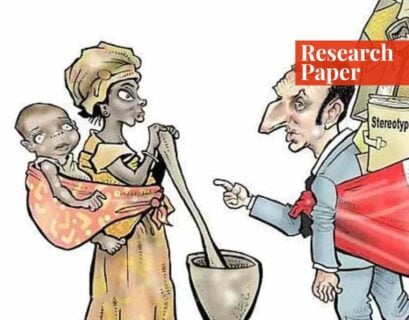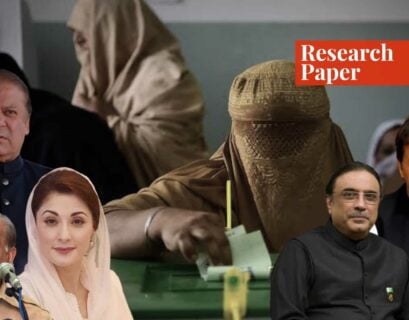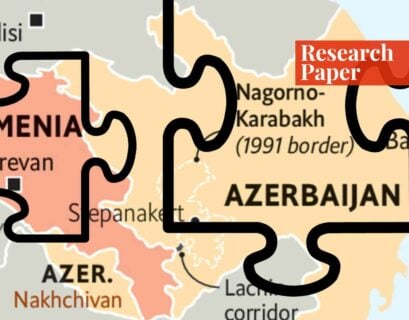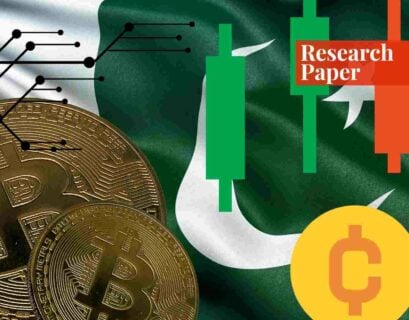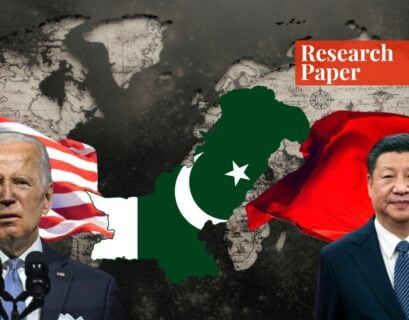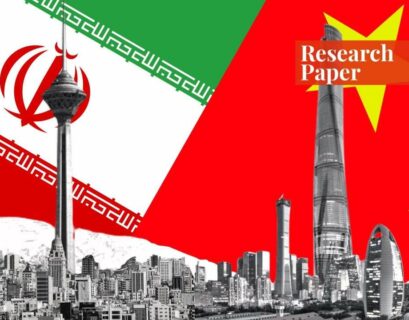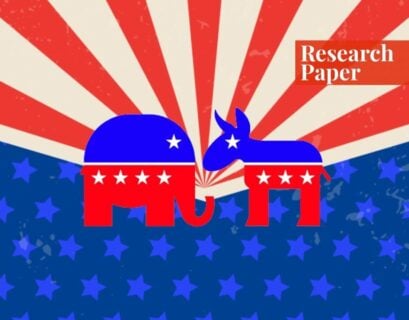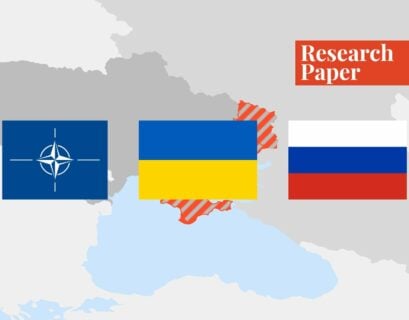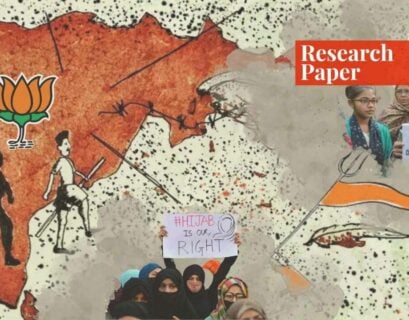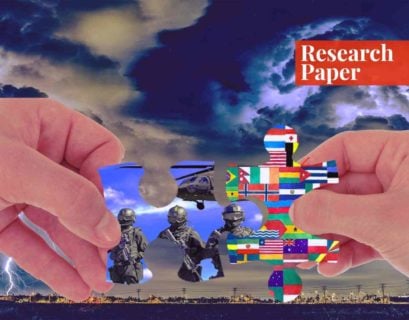Transforming the Economic Condition of Pakistan: Challenges & Solutions
Lt Gen (R) Tariq Khan examines the dire economic condition of Pakistan. He asserts that the state of Pakistan’s economy is the result of none other than its own policies and its disregard for the well-being of its citizens. In light of this self-inflicted damage, he advocates for a new economic initiative to steer Pakistan towards recovery.
Challenges and Prospects of Verification and Monitoring in Arms Control Agreements: A Case Study of the INF Treaty
This paper examines how the challenges posed by technological developments, political complexities, and compliance issues impact the monitoring and verification of arms control agreements.
It focuses on the Intermediate-Range Nuclear Forces (INF) treaty, and the prospects that exist for promoting security and disarmament in the face of these challenges.
How Contemporary International Public Policy is Shaped by the Legacies of Colonialism
The aftermath of colonialism is evident in the contemporary political landscape which shapes international public policy and helps in understanding conflicts in the world.
In this research paper, Tahoora Kamran uncovers the legacies of colonialism through three cases—the French colonial pact; Belgian rule in Rwanda; and neocolonial governance through the IMF and the World Bank—all of which ultimately indicate the traces of colonialism and showcase the importance of using a postcolonial lens.
Real Estate Prediction via Machine Learning: A Case Study of Pakistan’s Cities
The traditional methods for forecasting the price of a house as well as flats fail to capture the high complexity of price variance from house to house.
The purpose of this paper is to provide valuable insights into the real estate market such as potential market gaps and price estimation.
Additionally, the paper aims to facilitate a comprehensive comparison among different algorithms that can be used for house price prediction.
The Role of Electables in Pakistani Politics
This qualitative and primary research examines the nature and role of electables in Pakistan’s political system. It tries to investigate whether politicians and electables adhere to any political ideology or not. Electables have won most elections but have been unable to bring out any change in Pakistan.
The paper concludes on the basis of the descriptive analysis of the interviews of the politicians. The argument establishes that these politicians are ideologically agnostic who just want to achieve their political objectives. As a result, it appears that our mainstream political parties are under pressure to recruit as many electables as possible.
Conflict Management in Nagorno-Karabakh
The Nagorno-Karabakh war ended in 2020, but politically, there are still conflicts and problems related to the territory’s nationality and residence. Using the conflict management concept from Johan Galtung, this research aims to understand the processes and actors in the Nagorno-Karabakh case.
Is there a Future for Cryptocurrency in Pakistan?
Javeria Abbas analyzes the factors that are responsible for the adoption and the rejection of cryptocurrency in Pakistan. She tries to relate each factor responsible for the rejection of cryptocurrency in Pakistan with the Islamic finance system.
This paper also gives an insight into the bitcoin transaction system, how bitcoin is used, and how its usage is classified as unislamic.
Abandoning Retribution: Embracing Restorative Justice through Social Institutions in Pakistan and Beyond
Suleman Yousaf explores the role of society in crime prevention; from peer influence to moral reprimands to the loss of social status, he aims to discover potential alternatives to retributive justice.
He delves into a nuanced understanding of social status in deterring crime, drawing on Howard S. Becker’s labeling theory. Here, the theory is used to examine how the fear of being labeled and losing esteemed social standing can act as a deterrent against criminal behavior.
The study involved surveying 34 participants, and the findings support the proposed hypothesis that the fear of losing social status can indeed deter crime, making crime prevention by social intervention as crucial as investigation, prosecution, and conviction.
The paper also proposes a mechanism for establishing social institutions that operate through the “fluidity of identity,” which involves suspending the social status of potential offenders until they embrace civility and abandon the path of c…
Navigating the Sino-US Rivalry: Pakistan’s Strategic Dilemma
Yashfa Ahsan reflects on Pakistan’s intricate position amid the Sino-US rivalry. The South Asian state’s strategic location demands a multifaceted and balanced approach in its foreign policy and international relations. The author acknowledges the implications of India and the US’s engagement in the Indian Ocean Region for Pakistan’s security and economy. Bearing this in mind, she emphasizes that, with key players like India, Iran, and Afghanistan drawn into this rivalry, Pakistan must establish itself as a reliable economic and strategic partner for the states involved.
Food Insecurity: A Potential Traditional Security Threat?
Amna Naveed analyzes the undeniable link between food insecurity and political instability in a state. While considered a non-traditional security threat, food insecurity directly influences the state military’s retention power, financial spending, and the psychological well-being of the soldiers.
By considering the case of Africa’s food crisis, she reveals the impact of capitalism, colonialism, and war on the people of the continent. She emphasizes that if left unchecked, food insecurity can act as one of the factors responsible for protests, insurgencies, civil wars, and revolutions.
Exploring China’s Strategic Partnership with Iran
Divided into three sections, the first part of the paper examines the concept of “strategic partnership” as a new framework in international relations and intentional cooperation. It also examines how this concept has become integrated into China’s foreign policy, and the reasons behind Beijing’s over-reliance on it.
The second section examines China’s historical relations with Iran up to the announcement of the so-called comprehensive strategic partnership, focusing on the motives and goals of both states. The third section highlights the main challenges that are expected in Beijing’s strategic partnership with Tehran.
Evolution of the Two-Party System in the United States
Andrew Jackson’s Democratic Party and Abraham Lincoln’s Republican Party continue to dominate American politics today.
Have you ever wondered how the two-party system in the United States evolved?
This informative paper explores this question and examines the key changes in these two political parties from the nation’s beginning.
Applying Securitisation Theory to the Ongoing Russia-Ukraine Conflict
Muhammad Usama Siddiqi and Brilliant Windy Khairunnisa aim to explain the factors that led Russia to securitise Ukraine through the lens of the securitisation theory.
According to the theory, issues that are fundamentally political are considered and analysed from a security perspective. They use this theory to effectively frame the actors and threats in the Russia-Ukraine conflict.
Hindutva: Turning Secular India into a Hindu State
Hindutva has created divisions in Indian society by forging a ‘Muslim threat’ to legitimize the BJP’s anti-Muslim acts. Nishat Shuja analyzes Modi’s aim of creating a Hindu Rashtra (state) through Hindu supremacist policies and Muslim marginalization.
The 2019 Citizenship (Amendment) Act, the revocation of Kashmir’s autonomous status, and the Kerala hijab ban are cases in point for the systemic discrimination against the Muslim minority. Undoubtedly, PM Modi and right-wing Hindu nationalism threaten India’s constitutional foundations by creating a Hindu Rashtra.
Sports: A Tool for Diplomacy
History has seen many examples of sports diplomacy helping states to foster good relations. Football diplomacy involving Israelis and Arabs, the revolutionary ping-pong diplomacy between China and the US, and the cricket diplomacy between India and Pakistan are major case studies elaborating on the significance of sports diplomacy.
Masooma Zahra explores the demonstration of this soft power in exhaustive detail, referring to its examples and limitations.
The Impact of Brexit on the UK Economy
This research aims to explore the impact of Brexit, the most historic event to occur on the European continent since the fall of the Berlin wall.
The findings prove that while Brexit has given substance to factors (like taking back control of immigration and regaining sovereignty and national identity), it was not a rational economic decision.
The brits realized their mistake in the face of the severe economic hardships that the UK had to face post-Brexit.
Weather Warfare: Weapons of the Future
Amid climate concerns, states are now devising ways to change and control the weather. However, this initiative could tempt global powers into using weather to gain military advantage.
Muhammad Sajjad and Saba Kiran review international frameworks and several studies to demonstrate how weather modification technology can be used in future wars.
